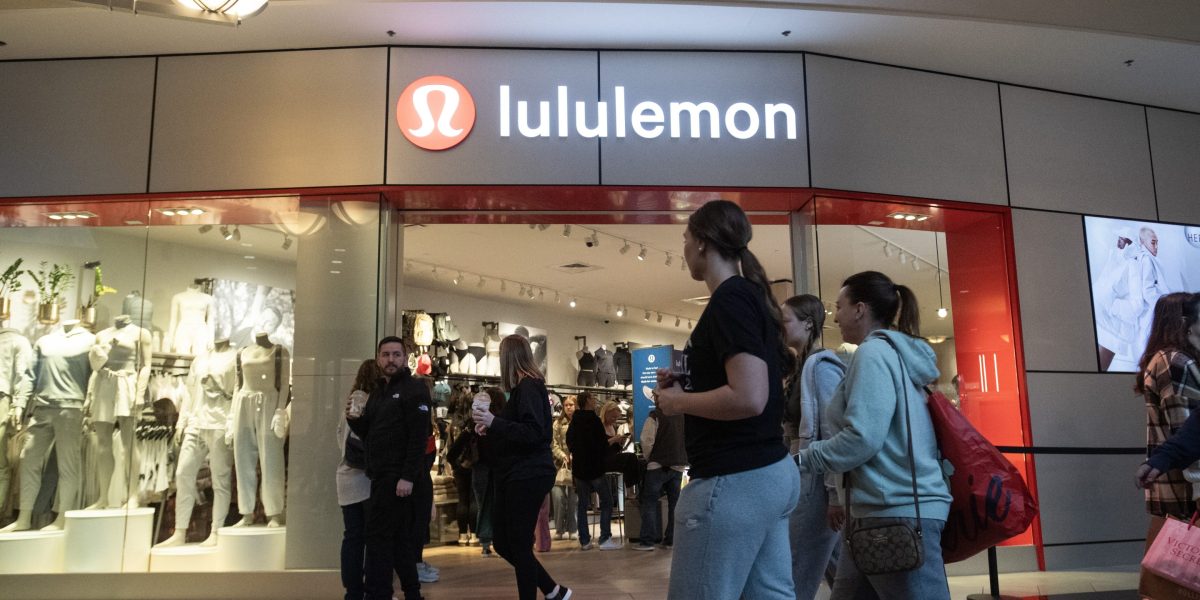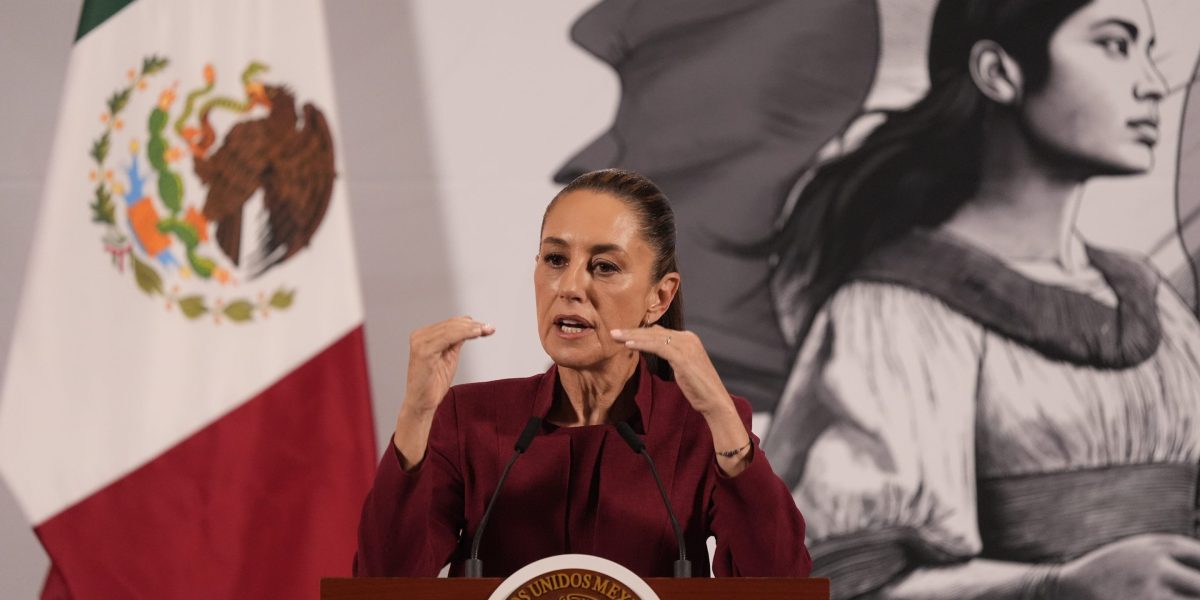- Lululemon reported a strong fourth quarter where revenue increased 13%. But the popular active-wear retailer had a modest outlook for this year based on uncertainty about tariffs and lower consumer spending. Its stock dropped on the lower-than-expected guidance.
Lululemon’s exceptional quarter had largely to do with “newness,” CEO Calvin McDonald said during the activewear brand’s earnings call Thursday, but the future doesn’t look as bright for the company.
Introducing new products helped drive higher foot traffic and interest in the brand, he said, resulting in a 13% fourth-quarter revenue increase to $3.61 billion that beat Wall Street’s expectations for $3.57 billion, according to a survey of analysts by LSEG. The brand launched several new lines like Glow Up, BeCalm, and Mile Maker, which all helped “drive guests’ loyalty, repeat purchase, and long-term value,” McDonald said.
But like many other retailers, Lululemon had a lower-than-expected outlook for 2025 due to the hot word of the moment: uncertainty. Indeed, Wells Fargo analysts wrote in a Friday note they believed investors were more interested in Lululemon’s “subdued” outlook.
McDonald said the company had conducted a survey with Ipsos earlier this month regarding consumer sentiment, and found “consumers are spending less due to increased concerns about inflation and the economy.”
That follows similar warnings from top U.S. airlines that flagged softer demand for travel as well as from Lululemon rival Nike and retail giant Walmart, which said customers are exhibiting “stressed behaviors.”
It’s also in line with other consumer sentiment surveys released this week. Consumer confidence hit a 12-year low, The Conference Board reported Tuesday, and the University of Michigan’s consumer sentiment survey released this week plummeted 11%.
At Lululemon, low consumer confidence is “manifesting itself” into slower foot traffic in the U.S. this quarter, McDonald said during the earnings call, adding that “we are controlling what we can control.”
For the first quarter, the company sees revenue of $2.34 billion-$2.36 billion, below Wall Street views for $2.39 billion.
Meghan Frank, chief financial officer of Lululemon, said during the earnings call “tariff headwinds” could lead to slower sales in 2025. In fact, management sees revenue of $11.1 billion-$11.3 billion this year, up modestly from $10.59 billion in 2024 but also below analysts’ expectations for $11.31 billion.
Upon that news, Lululemon shares dropped about 10% in extended trading. As of mid-morning Friday, shares were down more than 15% to $293.66 per share, which is also a 31% drop from a late-January high.
Lululemon didn’t immediately respond to Fortune’s request for comment.
Lululemon’s tough macro environment for 2025
Other investment banks including Morgan Stanley, Piper Sandler, and Raymond James downgraded their ratings for Lululemon following the earnings call, according to retail options tracker Jarvis. Jefferies analyst Randy Konik told Yahoo Finance “the theme remains that growth is fading.”
Although Bernstein analysts called Lululemon the “market leader” for North American sports apparel, they said the company is “particularly vulnerable to macro weaknesses,” which could hurt foot traffic this quarter.
Fresh economic data out Friday highlighted further the challenges that companies like Lululemon face. The Federal Reserve’s preferred inflation gauge ticked higher last month to an annual pace of 2.8%, topping views for 2.7%.
At the same time, consumer spending rose 0.4% on the month, below forecasts, even as personal incomes jumped 0.8%. That caution lifted the personal saving rate to 4.6%, the highest since June 2024.
Meanwhile, Lululemon has grown increasingly popular in China, with net revenue increasing roughly 40% during the fourth quarter. This year, Lululemon plans to open 40 to 45 stores, Frank said, a majority of which will be in China.
But fast-growing challenger brands in the active wear space are setting up an “epic showdown” for the industry this year, according to a November report by the Business of Fashion and McKinsey & Co.
“2025 is likely to be a time of reckoning for many brands,” the report said. This year’s outlook “appears to be a continuation of the sluggishness seen in 2024: revenue growth is expected to stabilise in the low single digits.”
Lululemon plans to release more product lines—one of which could appeal to workers returning to the office. The company will introduce a new fabric called “LuluLinen,” which has the look and feel of linen, but the feel of athletic wear.
But “as you are aware, the external environment remains dynamic, and there continues to be considerable uncertainty driven by macro and geopolitical circumstances,” McDonald said during the earnings call. “That being said, we remain focused on what we can control.”
This story was originally featured on Fortune.com
Source link

 Entertainment8 years ago
Entertainment8 years ago
 Politics8 years ago
Politics8 years ago
 Entertainment8 years ago
Entertainment8 years ago
 Entertainment8 years ago
Entertainment8 years ago
 Tech8 years ago
Tech8 years ago
 Tech8 years ago
Tech8 years ago
 Tech8 years ago
Tech8 years ago
 Politics8 years ago
Politics8 years ago







